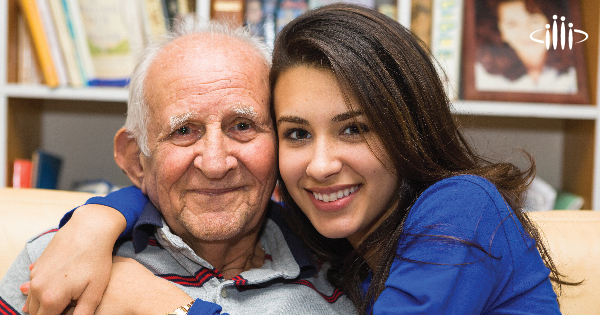Oct 11, 2017 —Health Matters for Women
Simple strategies can help you communicate with a loved one who has Alzheimer’s
It’s OK to admit: Talking to a loved one living with Alzheimer’s disease is no easy task.
Because Alzheimer’s attacks brain cells, communication can be a challenge—especially in the disease’s later stages. “During the late stages, the diseases moves into the frontal lobes of the brain,” says Richard Brown, psychiatrist for the Gero-Psychiatric program at Bingham Memorial Hospital. “When this area is damaged, a person will lose judgment, reasoning, and social skills.”
But how to communicate?
Early Stage
In this stage, your loved one may have difficulty finding the right words, need more time to process exchanges and might withdraw from conversation.
- “Ask the person what would help, as in, ‘Would you like me to help you find a word or would you just like me to be quiet while you figure it out?’ ”
- Avoid assumptions about your loved one’s ability to communicate. “Explore. Find what ways of communication work best,” says Dr. Brown.
- Keep sentences direct and straightforward.
- Don’t pull away. “People in early stages of Alzheimer’s feel like everyone is disappearing. It’s important to show up,” he adds.
Middle Stage
At this point, Alzheimer’s patients may lose focus and have difficulty speaking logically.
- Initiate conversation from a calm, gentle, kind, relaxed place because the person can still feel your mood.
- Look your loved one in the eye. “Talk to them face to face rather than talking over them or above them,” Dr. Brown advises.
- Avoid criticizing or correcting.
- When revisiting memories, avoid “Don’t you remember?” and similar questions. “Instead say, ‘I remember a time when you did this, and that helped me so much,’ ” he says.
Late Stage
By later stages, people with Alzheimer’s may be nonverbal or may have just a few words.
- Engage their other senses. Have a favorite music playlist ready. Give a hand massage with an aromatic lotion.
- Read a book that contains a familiar passage or favorite poems.
- Take walks outside.
- No matter the stage, Dr. Brown suggests always defaulting to dignity. “The person is still a whole person, an adult person, who has a lifetime of experience,” he says. “We still need to honor that person.”
TALK TO AN EXPERT
Dr. Richard Brown works with patients of all ages suffering from addiction, substance abuse, depression, anxiety, ADHD, dementia, depression, and other mental health challenges. In addition, he focuses on the prevention, evaluation, diagnosis, and treatment of mental and emotional disorders in the elderly.
To schedule an appointment with Dr. Brown in Blackfoot, call (208) 782-2955.
Our content is reviewed regularly and is updated when new and relevant evidence is made available. This information is neither intended nor implied to be a substitute for professional medical advice. Always seek the advice of your physician or other qualified health provider prior to starting any new treatment or with questions regarding a medical condition.

